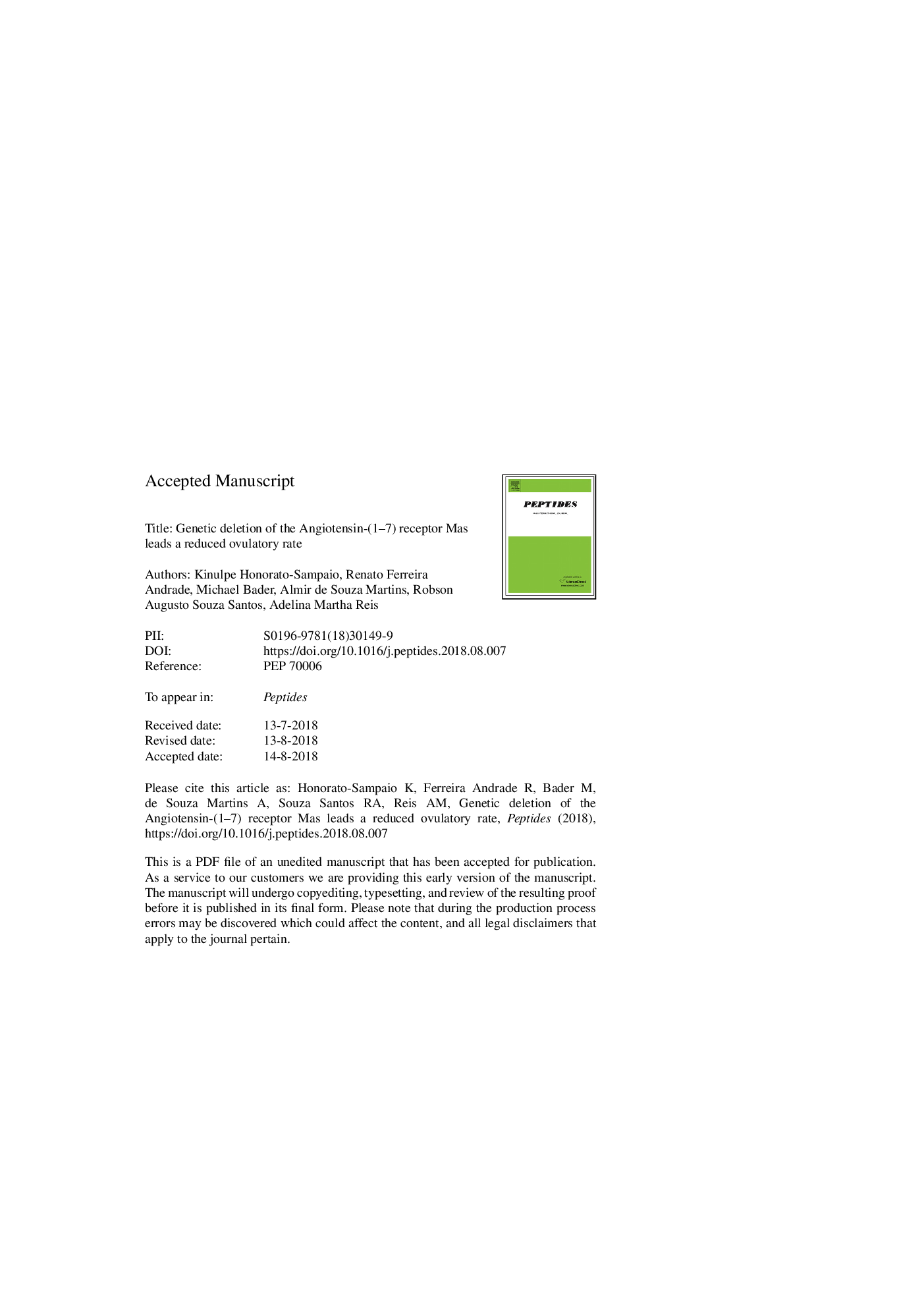| کد مقاله | کد نشریه | سال انتشار | مقاله انگلیسی | نسخه تمام متن |
|---|---|---|---|---|
| 8347211 | 1541672 | 2018 | 25 صفحه PDF | دانلود رایگان |
عنوان انگلیسی مقاله ISI
Genetic deletion of the Angiotensin-(1-7) receptor Mas leads to a reduced ovulatory rate
ترجمه فارسی عنوان
حذف ژنتیک گیرنده انسانی آنژیوتانسین (1-7) منجر به کاهش میزان تخمک گذاری می شود
دانلود مقاله + سفارش ترجمه
دانلود مقاله ISI انگلیسی
رایگان برای ایرانیان
موضوعات مرتبط
علوم زیستی و بیوفناوری
بیوشیمی، ژنتیک و زیست شناسی مولکولی
زیست شیمی
چکیده انگلیسی
Angiotensin-(1-7) [Ang-(1-7)] is a component of Renin-Angiotensin System (RAS) that acts through activation of the G-protein-coupled receptor Mas. Recent studies highlight Ang-(1-7) as an intermediate of gonadotropin in ovarian physiology. Genetically Mas-deficient mice allow the investigation of Ang-(1-7) in the ovulatory process. Therefore, the present study aimed to analyze the effects of Mas gene deletion on ovulation to confirm our hypothesis that Mas Knockout (Mas-KO) mice exhibit impairment in the ovulatory outcome. First, we evaluated the breeding data from our animal facilities and from a breeding experiment. The ovulation was observed directly from oviducts after a superovulation protocol and in the estrus morning. We also checked the follicular pool and mRNA expression of Insulin-like growth factor-1 (IGF-1) in ovaries to investigate a possible reason underlying the reduced ovulation. Mas-KO mice showed a reduced litter size and decreased spontaneous ovulatory rate. Ovarian stimulation by gonadotropins reversed ovulation outcome in Mas-KO mice. Mas deficiency also promoted a reduced ovarian follicular pool and lower IGF-1 mRNA levels, suggesting that Mas receptor plays a role in the survival of ovarian follicle. The reduction of ovulatory rate highlights the relevance of Ang-(1-7)/Mas axis in female reproduction, probably through a reduction of IGF-1 mRNA levels.
ناشر
Database: Elsevier - ScienceDirect (ساینس دایرکت)
Journal: Peptides - Volume 107, September 2018, Pages 83-88
Journal: Peptides - Volume 107, September 2018, Pages 83-88
نویسندگان
Kinulpe Honorato-Sampaio, Renato Ferreira Andrade, Michael Bader, Almir de Souza Martins, Robson Augusto Souza Santos, Adelina Martha Reis,
